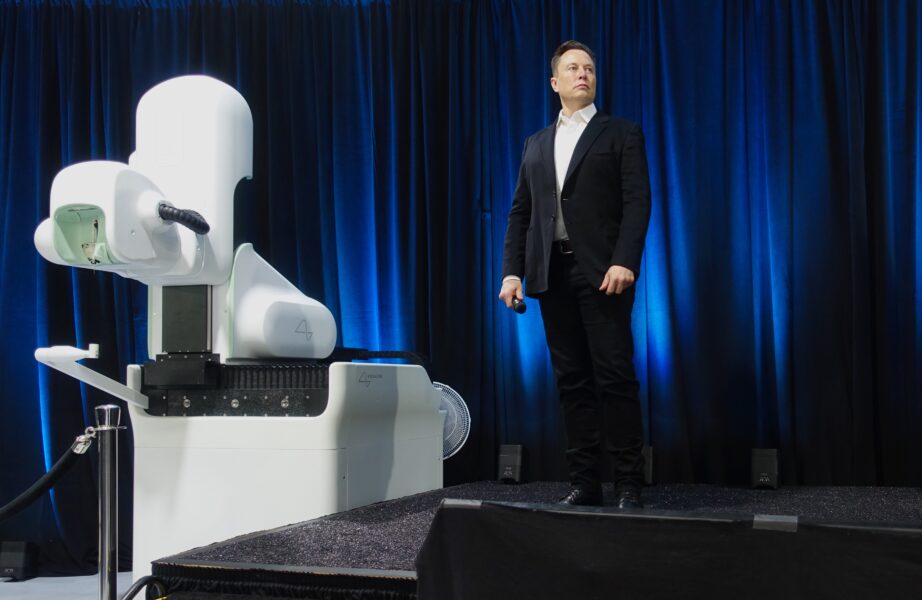
Fancy a world where you can turn on the kettle without lifting a finger? Write essays with your eyes closed? Or even secure a Timepiece ticket whilst dreaming?
All this could become a reality through Elon Musk’s Neuralink which has recently been approved for human trials. Neuralink is a brain implant which aims to merge the human brain with computer technology. The goal is to develop brain–computer interface (BCI) technologies that can enable direct communication between the human brain and external devices, such as computers or smartphones. The hope is that Neuralink could eventually be used to treat neurological conditions or enhance cognitive abilities.
The goal is to develop brain–computer interface (BCI) technologies that can enable direct communication between the human brain and external devices.
The technology involves implanting tiny electrodes into the brain, which can then pick up and transmit signals. Musk envisions a future where this technology can be used to address various neurological issues, such as paralysis or mental health disorders, and even to enable direct communication between individuals without the need for spoken or written language.
As with every innovative technology Neuralink has been approached with some scepticism and perhaps rightfully so. There are a multitude of ethical and safety concerns, as would be expected with a completely unproven technology. The idea of directly interfacing technology with the human brain raises ethical questions about privacy and consent. A dystopian nightmare may turn to reality with the possibility of tech companies having unauthorised access to individuals’ thoughts.
How would you like Elon Musk to have access to your inner most thoughts?
There are already major concerns about the access that social media companies such as TikTok, Facebook and Snapchat have to our personal data. These concerns can only be expected to deepen if computer technology is imbedded into our brains.
It was only last year that the Food and Drug Administration in the US denied Musk’s request to fast-track human trials: there reasoning has not been disclosed. It is then hard to see what has changed in the twelve months since that decision.
One thing is for certain, this bold ambition for the future of humanity — if implemented successfully — could be the magic bullet for paraplegics and people with mental health problems. Those facing challenges of limited motor function may find newfound independence through Neuralink, it will open avenues for seamless connections with prosthetic devices or exoskeletons. This breakthrough has the potential to empower individuals with enhanced mobility and a greater sense of autonomy.
The world is eagerly watching on to see whether Musk’s grand vision for humanity will materialise or be stopped in its tracks due genuine ethical and security quandaries.


